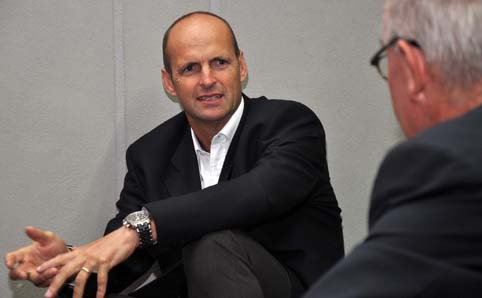Latest News Archive
Please select Category, Year, and then Month to display items
10 March 2022
|
Story Anthony Mthembu
|
Photo Unsplash
 The No Student Hungry team gearing up to start distributing food parcels to the selected students.
The No Student Hungry team gearing up to start distributing food parcels to the selected students.
The UFS is one of the many institutions of higher learning where food insecurity is an active issue. However, the
No Student Hungry Programme is one of the initiatives launched at the university to assist in fighting food insecurity at the institution.
The purpose of the programme
Since its inception in 2011, the initiative has assisted many students in acquiring a healthy meal. Additionally, the Food Environment Office also hands out food packages, so that students can continue to achieve academically. “We are trying to develop a healthy environment for students and make it easier for them to have a nice and healthy meal,” stated Annelize Visagie, who heads the Food Environment Office at the UFS. The Food Environment programme is spread out on all three campuses, each with its own facilitators. Furthermore, the programme mainly caters for students who are not funded by the National Student Financial Aid Scheme (NSFAS) but who are excelling academically. The abovementioned students apply for assistance online, and a list is then drawn up of students who receive assistance for the year.
Alternative solutions to keep the initiative running
On the Bloemfontein Campus, the No Student Hungry Programme will be catering for 200 students in the 2022 academic year, assisting them with a daily nutritious meal. Additional food parcels are also handed out to provide further assistance. “We give food parcels to the students on the list every Tuesday and Thursday at the Thakaneng Bridge,” Visagie highlighted. However, she argues that catering for the student population through this programme can be a challenge, as the demand for assistance is growing rapidly and the ability to assist is limited. The programme relies on partnerships and sponsors to assist the student body. In fact, the coordinators of the programme currently have a memorandum of understanding with Tiger Brands according to which they deliver around 100 food parcels for distribution.
In addition, the coordinators have put in place alternative measures to ensure that they can provide more food to students. “The
Kovsie Act Office, in partnership with the
Department of Sustainable Food Systems and Development, has started a food garden where healthy and nutritious produce are grown, in order to add value to the distribution,” she indicated. Although the programme can only assist to a point, students who are in desperate need of assistance are never turned away. In fact, the
Social Support Unit at Thakaneng Bridge usually assists students with food vouchers for a maximum of four days.
A commitment to teaching healthy eating habits
The programme is not only committed to curbing food insecurity, but also to ensuring that students have a healthy and balanced diet. As such, a booklet is being issued by the
Department of Nutrition and Dietetics in collaboration with the Department of Sustainable Food Systems and Development, which contains ways in which students can make a healthy meal using some of the ingredients offered in the food parcels.
“We want to teach students how to eat healthy in the cheapest way, because they don’t have a lot of money to buy expensive food products,” Visagie argued.
Making a difference is the most important thing for Gary Kirsten
2012-05-16
 |
|
Gary Kirsten
16 May 2012
|
“Can I make a difference in someone’s life?” This was the central driving force for Gary Kirsten, head coach of the 2011 World Cup winning Indian cricket team. He currently coaches the Proteas.
Gary was the first guest speaker at a new series of lectures at our Business School. Challenges and solutions in management will be highlighted in the series. In his lecture, Gary was interviewed by Prof. Johann Coetzee, Extraordinary Professor at the Business School. The audience got a glimpse of the person often seen on television screens and they travelled with him from his childhood days at the Newlands Cricket Ground to his days in New Delhi as head coach of the Indian team.
His challenge in India was to develop a new culture in a team with very valuable and expensive brands. His light-bulb moment occurred on a team-building visit to Australia. His question to the team was what he could do for them and what they would expect from him. The turning point was Sachin Tendulkar’s answer: I would like you to be my friend. Tendulkar’s wife’s comment on the winning night was the proof of his success. She said: “The last three years were the happiest in my husband’s life.”
Gary said it was an incredible privilege to make a difference in people’s lives. “I wake up asking myself where I can make a difference in someone’s life. You must create an environment for people to enjoy the game, challenge one another and thrive.”
He is confident that the Protea team has the potential to be a great cricket team. He said the upcoming England tour is a test. “This tour will test us to be the top team in the following years. I would like to set them up for the best chance to win.”